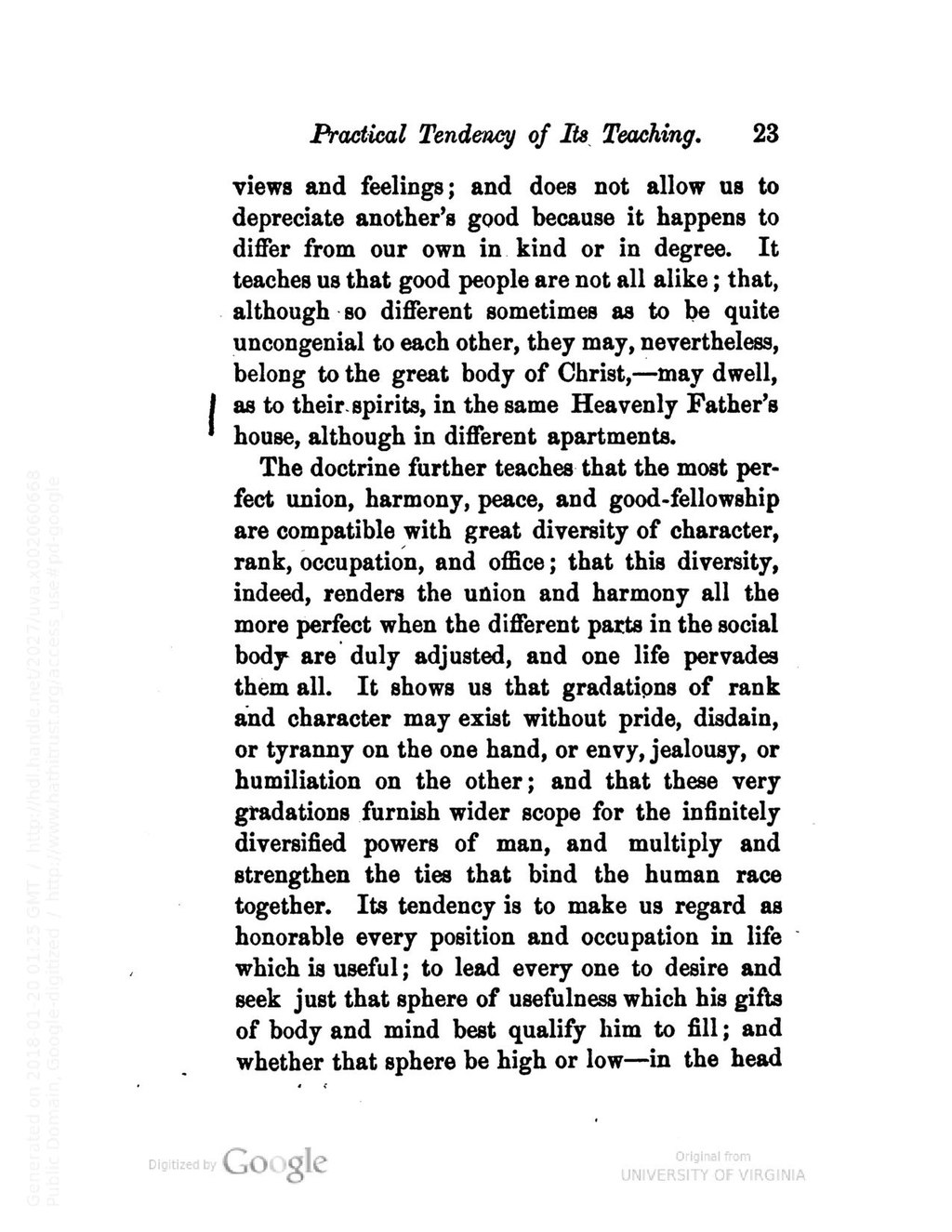views and feelings; and does not allow us to depreciate another's good because it happens to differ from our own in kind or in degree. It teaches us that good people are not all alike; that, although so different sometimes as to be quite uncongenial to each other, they may, nevertheless, belong to the great body of Christ,—may dwell, as to their spirits, in the same Heavenly Father's house, although in different apartments.
The doctrine further teaches that the most perfect union, harmony, peace, and good-fellowship are compatible with great diversity of character, rank, occupation, and office; that this diversity, indeed, renders the union and harmony all the more perfect when the different parts in the social body are duly adjusted, and one life pervades them all. It shows us that gradations of rank and character may exist without pride, disdain, or tyranny on the one hand, or envy, jealousy, or humiliation on the other; and that these very gradations furnish wider scope for the infinitely diversified powers of man, and multiply and strengthen the ties that bind the human race together. Its tendency is to make us regard as honorable every position and occupation in life which is useful; to lead every one to desire and seek just that sphere of usefulness which his gifts of body and mind best qualify him to fill; and whether that sphere be high or low—in the head
